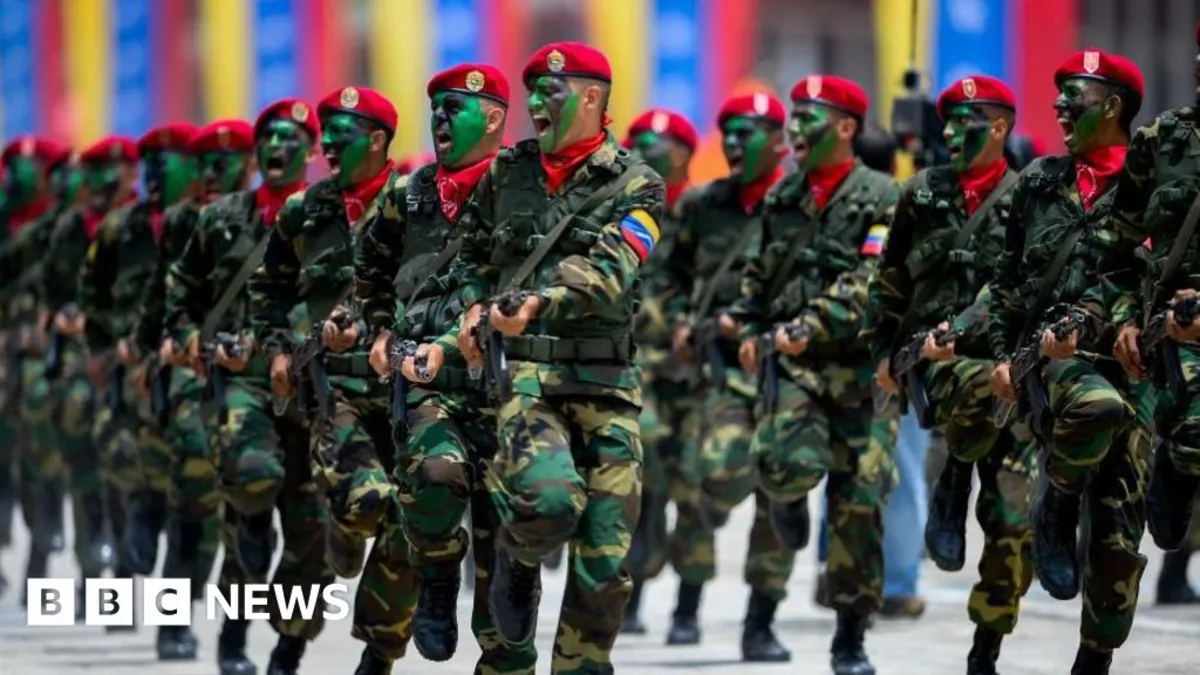
The Cartel de los Soles (translated as the Cartel of the Suns) has recently been designated by the United States as a foreign terrorist organization. This label alleges that the group is led by Venezuela's president, Nicolás Maduro, along with senior officials in his administration. By classifying an organization as a terrorist group, US law enforcement and military agencies gain broader powers to target and dismantle it effectively.
In recent months, the US government has intensified its pressure on Maduro, asserting that his administration is illegitimate following an election widely criticized as rigged. The recent terrorist designation serves as another method for the US to increase its efforts against the Maduro regime. However, significant doubts have been raised regarding the actual existence of the Cartel de los Soles.
The Venezuelan foreign ministry has categorically rejected the US designation, labeling it a "new and ridiculous lie." Diosdado Cabello, Venezuela's interior and justice minister and a figure allegedly linked to the cartel, has long denounced the idea as an invention. He has argued that US officials use this label as a pretext to target individuals they oppose. In a statement from August, he remarked, “Whenever someone bothers them, they name them as the head of the Cartel de los Soles.”
Additionally, Gustavo Petro, the left-wing president of neighboring Colombia, has also dismissed the cartel's existence, asserting it is a fabricated excuse used by the far right to destabilize governments that defy their will.
Despite the skepticism from Venezuelan officials, the US State Department remains firm in its assertion that the Cartel de los Soles is a real entity that has infiltrated and corrupted Venezuela's military, intelligence agencies, legislature, and judiciary. Experts consulted by the BBC suggest that the truth about the cartel is likely somewhere in between the US allegations and the Venezuelan government’s denials.
The term Cartel de los Soles first surfaced in the early 1990s when the Venezuelan media reported on drug trafficking allegations against a general responsible for counter-narcotic operations within Venezuela's National Guard. The name references the sun-shaped insignia worn by Venezuelan generals, signifying their rank. Over time, this term has been extended to include numerous Venezuelan officials alleged to have connections to drug trafficking.
According to organized crime expert Raúl Benítez-Manau, the cartel’s activities began in the late 1980s and early 1990s as a response to the evolving landscape of drug trafficking in Colombia, especially as the once-dominant Medellín Cartel was dismantled. In the context of increased pressure on established smuggling routes, the Cartel de los Soles emerged as an alternative means to transport cocaine from Colombia.
The cartel allegedly gained strength during the presidency of Hugo Chávez, who led Venezuela from 1999 until his death in 2013. Chávez's confrontational stance toward the United States and the termination of military cooperation allowed Venezuelan military officers to engage in drug trafficking without oversight from the US Drug Enforcement Administration (DEA). Chávez's support for Colombia's left-wing FARC guerrillas, who financed their operations through cocaine smuggling, further facilitated drug trafficking routes through Venezuela.
Former DEA agent Wesley Tabor has indicated that the FARC not only found shelter in Venezuela but also formed partnerships with various government officials, from police to military personnel, leading to the trafficking of hundreds of tonnes of cocaine into the United States.
Experts like Mike LaSusa argue that the Cartel de los Soles lacks a formal structure, describing it instead as a system of pervasive corruption. It has thrived amidst Venezuela's ongoing economic crisis under Nicolás Maduro, who struggles to provide adequate salaries for security forces. To maintain loyalty, the regime allows these forces to accept bribes from drug traffickers.
According to Benítez-Manau, the cartel is primarily composed of mid- to lower-ranking officers who control crucial entry and exit points such as airports, giving them the capability to facilitate drug flow. US officials, however, contend that the influence of the Cartel de los Soles extends to the highest echelons of the Maduro government, implicating Maduro himself.
In 2020, the US Justice Department accused Maduro and 14 others of conspiracy with armed Colombian groups to smuggle cocaine into the United States. High-ranking officials named in these allegations include Defense Minister Vladimir Padrino and the former head of Venezuela's Supreme Court, Maikel Moreno. US prosecutors claimed that since at least 1999, the Cartel de los Soles has been led and managed by Maduro, Cabello, and other senior military figures.
Former high-ranking Venezuelan military officials, including Hugo Carvajal and Clíver Alcalá, have provided information supporting these allegations. Leamsy Salazar, a former security chief for Hugo Chávez, has been instrumental in revealing the cartel's operations, claiming Cabello is its leader, a charge Cabello has vehemently denied.
As the situation unfolds, both Maduro and Cabello remain in Venezuela, though the US has increased its rewards for information leading to their capture to $50 million for Maduro and $25 million for Cabello. The Venezuelan government has consistently dismissed the drug trafficking accusations as a tactic by the US to justify intervention and destabilization efforts against the Maduro regime.
In a recent statement, the Venezuelan foreign ministry branded the designation of the Cartel de los Soles as a terrorist organization a "ridiculous fabrication," asserting that the cartel does not exist and that the US is employing vile lies to legitimize interventions against Venezuela.